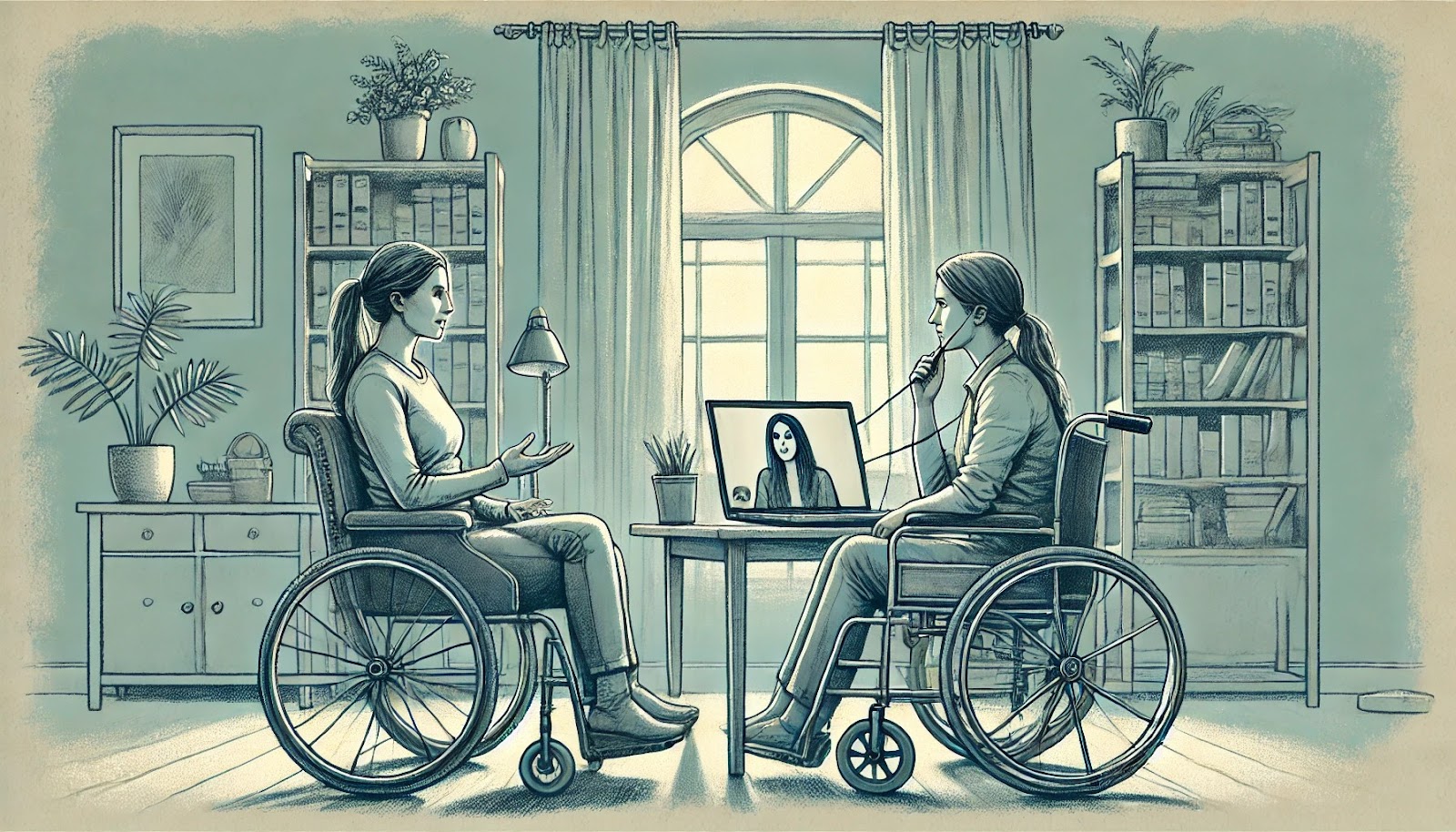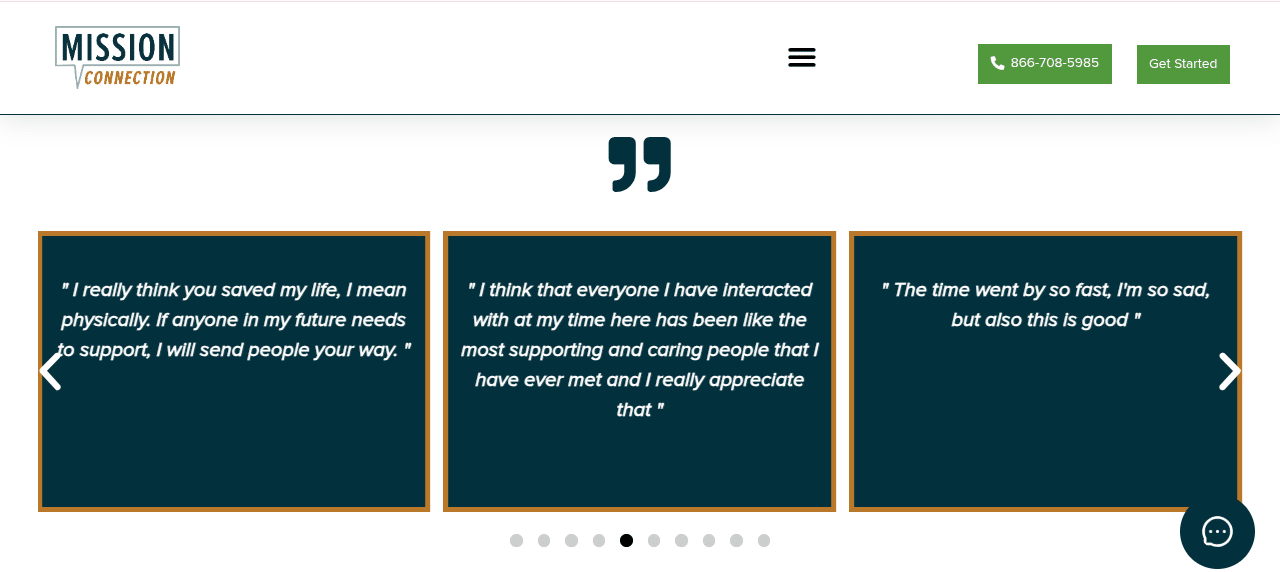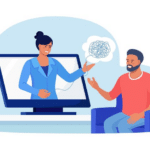
Key Takeaways
- Virtual therapy provides convenient access to mental health services from the comfort of your California home.
- Virtual therapy offers more privacy by allowing you to participate in sessions from your own personal space.
- Scheduling is flexible, making it easier to fit therapy sessions into your busy life.
- Choosing the right therapist involves researching platforms, verifying credentials, and considering specialization.
- Mission Connection delivers comprehensive mental healthcare through both telehealth and in-person options, with daily group therapy, weekly individual sessions, and medication management by licensed professionals.
Introduction to California Virtual Therapy
Virtual therapy is changing mental health care for the better, especially in California, as it increases accessibility and aligns with the fast-paced lifestyle many Californians lead. It ensures that everyone, regardless of their location or mobility, can receive the support they need.
This inclusivity is particularly beneficial for those living in rural areas or those with disabilities. By breaking down geographical barriers, virtual therapy makes mental health care more equitable and widespread.
California is actively supporting this shift.
Through initiatives from the Department of Health Care Services (DHCS), the state is investing in digital mental health platforms to expand access and improve outcomes statewide.
In addition, California law requires many insurance providers to cover telehealth services at the same reimbursement rate as in-person visits, according to the Center for Connected Health Policy. This legal backing helps make virtual therapy a financially accessible option for more people.
The state has also committed over $500 million toward youth mental health initiatives, investing in virtual solutions to meet the growing needs of younger Californians, as reported by CapRadio.
At Mission Connection, our hybrid care model reflects and supports these efforts by delivering high-quality, flexible care that fits into the lives of Californians—no matter where they are or what challenges they face.
Impact of the Digital Age
The digital age has transformed how we communicate, work, and now, how we receive mental health care. Virtual therapy is a product of this evolution, using technology to deliver therapeutic services efficiently. This shift has increased the reach of mental health services and modernized the approach to therapy.
Current Trends in Virtual Therapy
Virtual therapy is continuously improving. One significant trend is the integration of artificial intelligence in therapy platforms to provide preliminary assessments or support. Additionally, there is a growing focus on personalized therapy plans.
Mission Connection offers flexible outpatient care for adults needing more than weekly therapy. Our in-person and telehealth programs include individual, group, and experiential therapy, along with psychiatric care and medication management.
We treat anxiety, depression, trauma, and bipolar disorder using evidence-based approaches like CBT, DBT, mindfulness, and trauma-focused therapies. Designed to fit into daily life, our services provide consistent support without requiring residential care.
Exploring Virtual Therapy Benefits
Accessibility for All
Virtual therapy ensures that mental health care is within reach for everyone. If you live in a bustling city – or a remote town – you can access therapy sessions without the need to travel. This universal accessibility is a game-changer in the mental health sector.

As it doesn’t require you to be physically present, it reduces the barriers to seeking help, encouraging more people to engage in therapy.
Flexibility in Scheduling
You can schedule sessions at times that suit your lifestyle, whether it’s early in the morning or late at night. This adaptability makes it easier to integrate therapy into your routine without disrupting your day.
Privacy and Comfort at Home
Virtual sessions conducted from the comfort of your home offer a level of privacy that traditional therapy may not. This environment allows you to be more open and relaxed during sessions.
Also, the comfort of familiar surroundings can enhance the therapeutic experience, making it easier to engage and communicate with your therapist.
Cost-Effectiveness
Virtual therapy can be more cost-effective than in-person sessions. Many platforms offer competitive pricing, and the elimination of travel expenses adds to the savings.
Verify with your insurance provider to understand the coverage details and any potential out-of-pocket expenses. By doing so, you can ensure that virtual therapy remains an affordable option for your mental health care needs.
Preparing for Your Virtual Therapy Session
Tech Requirements
Virtual therapy relies heavily on technology, so make sure your setup meets the necessary requirements. Most platforms will specify the technical requirements needed for sessions, such as compatible devices and software.
Ensure your device is updated with the latest software to avoid compatibility issues. Additionally, using headphones can enhance audio quality and maintain privacy during your session. If you’re new to virtual therapy, consider doing a test run with a friend to familiarize yourself with the platform’s features.
Creating a Private Space
Having a private space free from distractions and interruptions allows you to fully engage in your therapy session. Consider informing household members of your session times to minimize disturbances.
Personalizing the space with items that bring you comfort, such as a cozy blanket or a favorite chair, can also enhance the experience. The goal is to create an environment where you feel safe and comfortable to express yourself openly.
What to Expect in Sessions
Virtual therapy sessions typically follow a structure similar to in-person sessions. Your therapist will guide the conversation, talk about your thoughts and feelings, and work with you to develop coping strategies. The main difference is the medium through which you communicate.
Approach virtual sessions with an open mind and be willing to engage fully. The effectiveness of therapy largely depends on your willingness to participate actively and honestly.
Emergency Provisions
While virtual therapy is effective for many, have a plan in place for emergencies. Discuss with your therapist what steps to take if you experience a mental health crisis during or outside of sessions.
Your therapist should provide guidance on what to do if you need immediate support, ensuring you have the necessary resources at your disposal.
Addressing Limitations
Challenges with Technology
Technical issues can sometimes disrupt virtual therapy sessions. Internet connectivity problems, software glitches, or device malfunctions can hinder communication.

Also, being patient and flexible can help you manage these challenges without frustration. Technology is a tool, and occasional issues are normal. Stay focused on your therapy goals and work with your therapist to overcome any obstacles.
Personal Connection Concerns
In traditional therapy settings, the physical presence of a therapist can create a comforting environment that fosters trust and openness. However, in a virtual setting, some may feel that this connection is harder to establish.
To address this, therapists often use various techniques to enhance the sense of connection. They might focus on maintaining eye contact through the camera, use empathetic listening skills, and ensure they are fully present during sessions. Clients can also help by being open about their feelings regarding the virtual format, allowing therapists to adjust their approach accordingly.
Limited Use Cases
While virtual therapy is highly effective for many, it may not be suitable for everyone. Individuals with severe mental health issues or those in crisis may require more intensive, in-person support. Additionally, certain therapeutic techniques that rely on physical presence, such as art or play therapy, may not translate well to a virtual format.
Assess your personal needs and discuss them with your therapist. They can help determine if virtual therapy is the right fit for you or if a combination of virtual and in-person sessions might be more beneficial.
How to Find a Virtual Therapist in California
Research Trusted Centers
Start by looking for centers that have a strong reputation and positive reviews from users.

Also, consider exploring local options. Local platforms often have therapists who understand the specific challenges faced by residents in your area, which can enhance the therapy experience.
Consider Specializations
Therapists often have specializations in specific areas such as anxiety, depression, trauma, or relationship issues. When selecting a therapist, consider your own mental health needs and seek someone with expertise in that area. Specialized knowledge can provide targeted strategies and insights that general therapy might not offer.
Evaluate Costs and Insurance Coverage
Start by evaluating the costs associated with different platforms and therapists. Prices can vary significantly, so find an option that fits your budget.
Additionally, check with your insurance provider to see if virtual therapy is covered under your plan. Knowing the extent of your coverage can help you plan financially and avoid unexpected costs.
Verify Therapist Credentials
Lastly, once you’ve identified a center, verify the credentials of potential therapists. Ensuring that your therapist is licensed and has the appropriate qualifications is aids effective therapy.

Verifying credentials gives you confidence in your therapist’s abilities and ensures that you’re receiving professional and ethical care. Don’t hesitate to ask the therapist directly about their qualifications if you have any doubts.
Experience the Future of Mental Healthcare With Mission Connection
At Mission Connection, we’ve taken California virtual therapy to the next level with our innovative hybrid approach. Unlike standard online therapy platforms that offer only weekly sessions, our comprehensive program provides daily group therapy, weekly individual therapy, and psychiatric care including medication management all available both virtually and in person.
What truly sets us apart is our commitment to personalized care. Our multidisciplinary team of licensed professionals designs customized treatment plans incorporating evidence-based treatment like Cognitive Behavioral Therapy (CBT), Dialectical Behavioral Therapy (DBT), Mindfulness, and Emotion Focused Therapy that address your specific mental health needs.
We understand the financial concerns that often accompany seeking mental health support, which is why we work with numerous insurance providers to make our services affordable and accessible.
Ready to experience mental healthcare that fits your life? Contact Mission Connection today and learn how our comprehensive approach can support your journey toward lasting wellness.
Call Today 866-833-1822.
Frequently Asked Questions
How does virtual therapy differ from in-person sessions?
Virtual therapy differs primarily in its delivery method. While in-person sessions occur in a therapist’s office, virtual therapy takes place online through video calls, phone calls, or messaging. This allows for greater flexibility and accessibility, though it may lack the physical presence of traditional therapy.
Can I change therapists if I’m not comfortable?
Absolutely. Finding the right therapist is crucial for effective therapy. If you feel uncomfortable or that the current therapist isn’t the right fit, you have the option to switch. Most platforms allow you to try different therapists until you find someone who meets your needs.
Are text messages effective in therapy?
Text messages can be an effective supplement to therapy, especially if you prefer written communication. They allow for ongoing support and check-ins between sessions. However, they are typically not a replacement for full sessions and work best when combined with video or phone therapy.
What happens in a technology failure during a session?
Technology failures can happen, but having a backup plan can mitigate their impact. Discuss with your therapist what steps to take in case of a disruption, such as switching to a phone call or rescheduling the session. Being prepared ensures that therapy can continue smoothly, even in the face of technical issues.
What treatment options does Mission Connection offer?
Mission Connection provides a comprehensive approach to mental healthcare beyond traditional weekly therapy. Our multidisciplinary team delivers daily group therapy sessions with licensed therapists, weekly psychiatric care including medication management, and personalized individual therapy.
Our innovative model offers both in-person and telehealth services, allowing you to access care when, where, and how it works best for your lifestyle.








